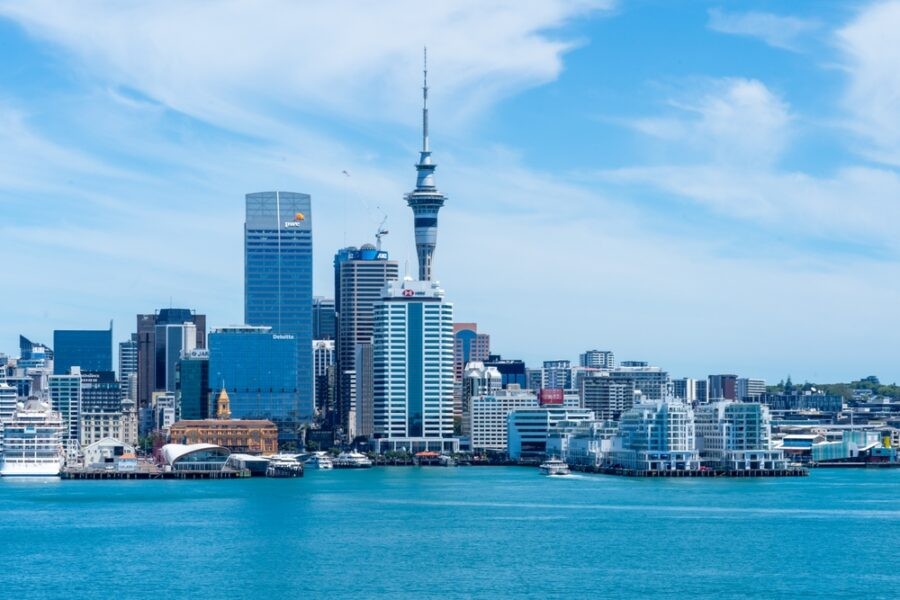New Zealand influencers fined NZ$125,000 over online gambling promotion

Four social media influencers have been fined a combined NZ$125,000 (US$72,258)1 NZD = 0.5781 USD
2025-09-29Powered by CMG CurrenShift by New Zealand’s Department of Internal Affairs for illegally promoting overseas casinos online.
Millie Elder-Holmes became the first influencer penalized in May, receiving a NZ$5,000 (US$2,890)1 NZD = 0.5781 USD
2025-09-29Powered by CMG CurrenShift fine. She has since been fined NZ$10,000 (US$5,781)1 NZD = 0.5781 USD
2025-09-29Powered by CMG CurrenShift more for two additional breaches.
Calen Morris and Billy Whaanga were each fined NZ$20,000 (US$11,561)1 NZD = 0.5781 USD
2025-09-29Powered by CMG CurrenShift, while Tuhira Wana received NZ$15,000 (US$8,671)1 NZD = 0.5781 USD
2025-09-29Powered by CMG CurrenShift in penalties.
Curacao-based icasino Spinbet was fined NZ$60,000 (US$34,684)1 NZD = 0.5781 USD
2025-09-29Powered by CMG CurrenShift for 12 breaches of New Zealand’s gambling advertising laws, banning overseas operators from targeting local audiences.
“Tens of thousands to the hundreds of thousands. There’s no concrete evidence but if people are willing to incur NZ$5,000 (US$2,890)1 NZD = 0.5781 USD
2025-09-29Powered by CMG CurrenShift per post, you have to assume people are receiving a fair amount from the casinos,” Vicki Scott, Director of Gambling at the Department of Internal Affairs, told the New Zealand Herald.
Scott added that repeat offenders could face more serious consequences, including the disabling or geo-locking of their social media accounts.
Complaints about gambling promotions have doubled in two years, and 40 influencers are on the Department of Internal Affairs watchlist.
Legislation set to take effect in 2026 will introduce a licensed online gambling market and significantly harsher penalties for unlicensed operators, of up to NZ$5 million (US$2.9 million)1 NZD = 0.5781 USD
2025-09-29Powered by CMG CurrenShift.
Charlotte Capewell brings her passion for storytelling and expertise in writing, researching, and the gambling industry to every article she writes. Her specialties include the US gambling industry, regulator legislation, igaming, and more.
Verticals:
Sectors:
Topics:
Dig Deeper
The Backstory
How a fringe marketing tactic became a regulatory flashpoint
Authorities across New Zealand, Australia and India have spent the past two years tightening the screws on social media promotions for offshore gambling, moving from quiet warnings to fines, arrests and site blocks. The shift reflects a steady rise in influencer-driven campaigns that target local audiences with bonuses and referral links from operators that lack local licenses, a model that regulators say sidesteps consumer safeguards.
In New Zealand, that escalation is clearest. After early cautionary notices, the Department of Internal Affairs began issuing formal takedowns and public warnings in 2024, with officials flagging that each ad could attract a separate penalty. That phase was documented when the agency warned influencers they face fines for advertising offshore casinos, citing section 9(2)(b) of the Gambling Act 2003 and confirming multiple investigations were under way. By mid-2025, the department crossed into sustained enforcement, fining a Curacao-based operator and several high-profile creators while signaling harsher measures for repeat breaches.
Australia followed a parallel course, but with a broader scope. The communications regulator first prioritized blocking illegal sites and curbing spam from licensed bookmakers, then widened its lens to creators themselves as influencer placements surfaced for unlicensed sportsbooks claiming local ties. Those actions now span penalties against operators for direct marketing failures and public threats of fines for online personalities who amplify offshore brands to Australian users.
From warnings to fines in New Zealand
The most concrete pivot in New Zealand came with coordinated penalties that hit both supply and demand for promotional reach. In a recent series of cases, authorities fined four influencers a combined NZ$125,000 for pushing offshore casinos, and imposed a NZ$60,000 sanction on a Curacao operator alleged to have run a campaign aimed at New Zealanders. The crackdown was detailed in coverage of NZ$125,000 in fines over online gambling promotion, which also noted that complaint volumes had doubled in two years and that 40 creators were on a watchlist.
The step change followed an earlier enforcement posture centered on removing posts and educating creators. In the department’s first wave of notices, officials confirmed they had sent four warnings and were probing 13 additional accounts, as reported in New Zealand warns influencers they face fines for advertising offshore casinos. Regulators signaled that penalties could escalate quickly and that platforms might face geo-locking if behavior persisted. The government’s plan to create a licensed online casino market from 2026, paired with potential fines of up to NZ$5 million for unlicensed operators, has heightened the urgency to curb offshore promotions during the transition.
Australia’s dual track: operators and influencers
Australia’s regulator has pursued a twin approach: enforcing spam and self-exclusion rules for licensed firms while publicly warning creators against advertising illegal offshore sites. ACMA’s warning that influencers risk fines of up to AU$59,400 if they promote unlicensed operators followed a string of posts touting a Belize-based sportsbook that marketed itself as an Australian brand without local authorization. The watchdog also leaned on internet service providers to block access to the site after finding it breached the Interactive Gambling Act.
The agency formalized the warning in a June advisory that put influencers “on notice.” That statement is captured in ACMA’s own alert, warning social media influencers promoting illegal online gambling breaks law, and in related reporting from The Guardian on creators who inadvertently promoted offshore bookmakers. The message: paid placements and promo codes can trigger liability even if a creator claims they were unaware of licensing gaps.
At the same time, ACMA has levied six and seven figure penalties on licensed operators for marketing to self-excluded or non-consenting customers, underscoring that regulatory risk is not confined to offshore actors. In May, PointsBet was fined AU$500,000 for sending more than 800 marketing messages that violated spam rules, including emails to users listed on BetStop, Australia’s national self-exclusion register. The case, covered in PointsBet fined AU$500,000 for gambling advertising spam and corroborated by ABC News’ report on the ACMA action, highlights the regulator’s focus on consumer harm and compliance lapses in direct marketing.
ACMA has also penalized Betfair AU$871,660 for sending 148 promotional messages without valid consent, including incentives for VIPs and some communications with no unsubscribe option. Details appear in coverage of the Betfair fine and in the regulator’s investigation report and enforceable undertaking. The two-year court-enforceable arrangement requires independent reviews, audits and staff training, signaling longer-term oversight for marketing practices that touch vulnerable users.
India’s arrests show enforcement can move offline
In India, the crackdown has included criminal charges tied to influencer promotions. Police in Rajkot arrested two creators who allegedly produced Instagram reels for online gambling platforms and earned commissions when followers opened accounts via their links. Authorities said one influencer with 954,000 followers and another with 320,000 earned hundreds of thousands of rupees over six months. The case, described in reporting on Indian social media influencers profiting from gambling promotion, underscores the use of cybercrime monitoring to track paid posts and affiliate activity across Instagram and Telegram.
The arrests, made under Section 12(A) of the Gambling Act, mirror tactics seen in other jurisdictions: follow the money from viral content to account sign-ups, then build a case around inducements and unlicensed activity. While India’s patchwork of state and federal rules differs from New Zealand and Australia, the operational playbook for promoters — short-form video, promo codes, affiliate fees — looks similar, making the approach portable for investigators.
Why the pressure is intensifying now
The enforcement surge stems from a collision of incentives. Offshore operators seek growth in markets with strong sports betting interest and high social media engagement. Creators with large audiences can convert traffic into paid sign-ups, often with limited due diligence on licensing. Regulators meanwhile see rising complaints and evidence that marketing reaches self-excluded users or minors, and have more tools to act, from site blocking to court-enforceable undertakings.
New Zealand’s pending legalization of online casinos raises the stakes: authorities want to clear the field of offshore ads before licensed competitors enter. Australia’s strategy shows that licensed status is no shield when marketing crosses legal lines, and that influencer content will be scrutinized like any other ad channel. India’s arrests demonstrate that police can turn platform-native tactics into evidence for criminal cases.
For platforms, agencies and creators, the message is converging. Paid placements for unlicensed operators can trigger fines, blocks or worse. Affiliates and VIP inducements invite deeper audits. And once regulators document a pattern — as in New Zealand’s move from warnings to penalties, or ACMA’s progression from spam enforcement to creator warnings — follow-on actions typically get faster and costlier.








